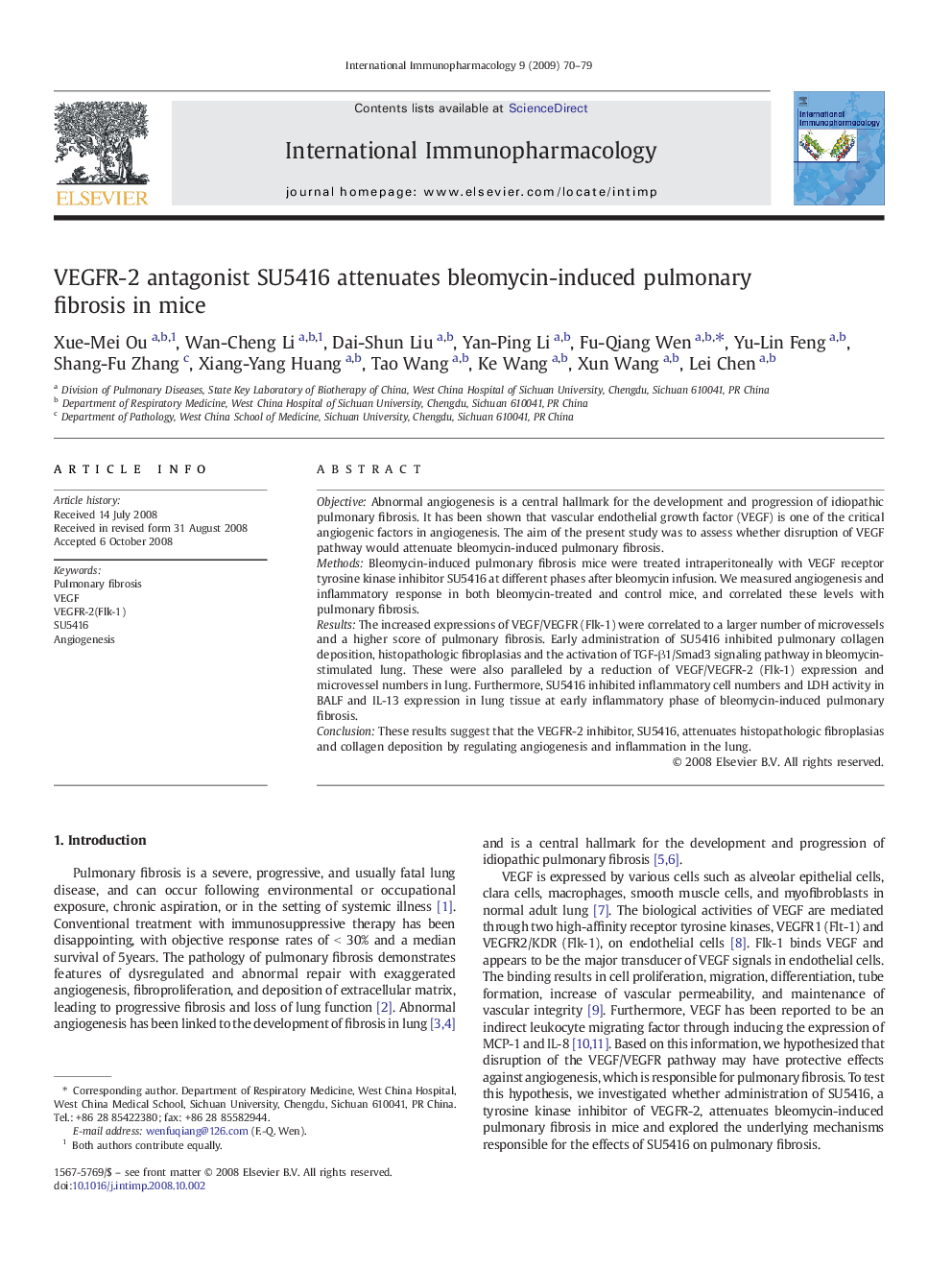| Article ID | Journal | Published Year | Pages | File Type |
|---|---|---|---|---|
| 2542182 | International Immunopharmacology | 2009 | 10 Pages |
ObjectiveAbnormal angiogenesis is a central hallmark for the development and progression of idiopathic pulmonary fibrosis. It has been shown that vascular endothelial growth factor (VEGF) is one of the critical angiogenic factors in angiogenesis. The aim of the present study was to assess whether disruption of VEGF pathway would attenuate bleomycin-induced pulmonary fibrosis.MethodsBleomycin-induced pulmonary fibrosis mice were treated intraperitoneally with VEGF receptor tyrosine kinase inhibitor SU5416 at different phases after bleomycin infusion. We measured angiogenesis and inflammatory response in both bleomycin-treated and control mice, and correlated these levels with pulmonary fibrosis.ResultsThe increased expressions of VEGF/VEGFR (Flk-1) were correlated to a larger number of microvessels and a higher score of pulmonary fibrosis. Early administration of SU5416 inhibited pulmonary collagen deposition, histopathologic fibroplasias and the activation of TGF-β1/Smad3 signaling pathway in bleomycin-stimulated lung. These were also paralleled by a reduction of VEGF/VEGFR-2 (Flk-1) expression and microvessel numbers in lung. Furthermore, SU5416 inhibited inflammatory cell numbers and LDH activity in BALF and IL-13 expression in lung tissue at early inflammatory phase of bleomycin-induced pulmonary fibrosis.ConclusionThese results suggest that the VEGFR-2 inhibitor, SU5416, attenuates histopathologic fibroplasias and collagen deposition by regulating angiogenesis and inflammation in the lung.
